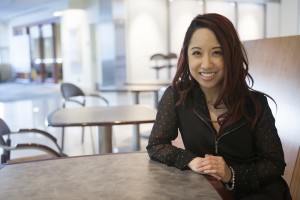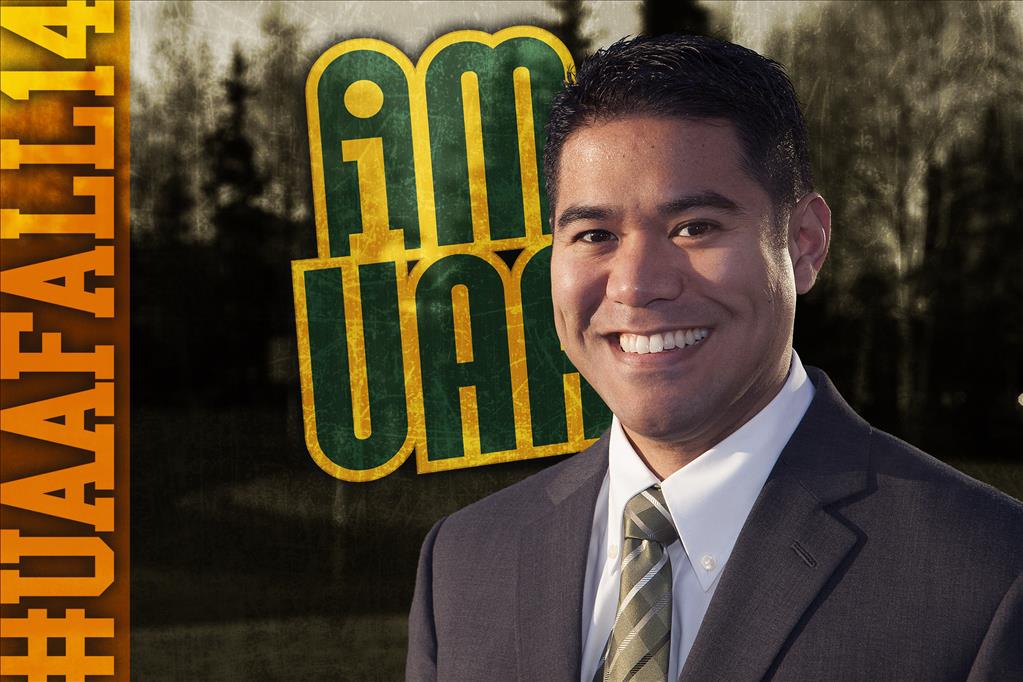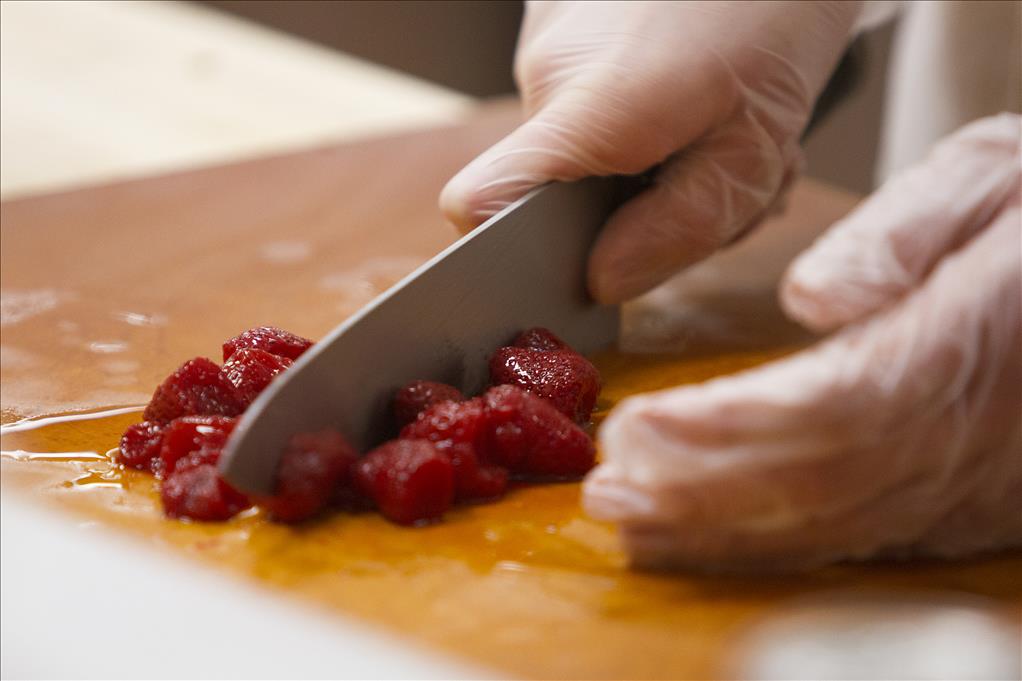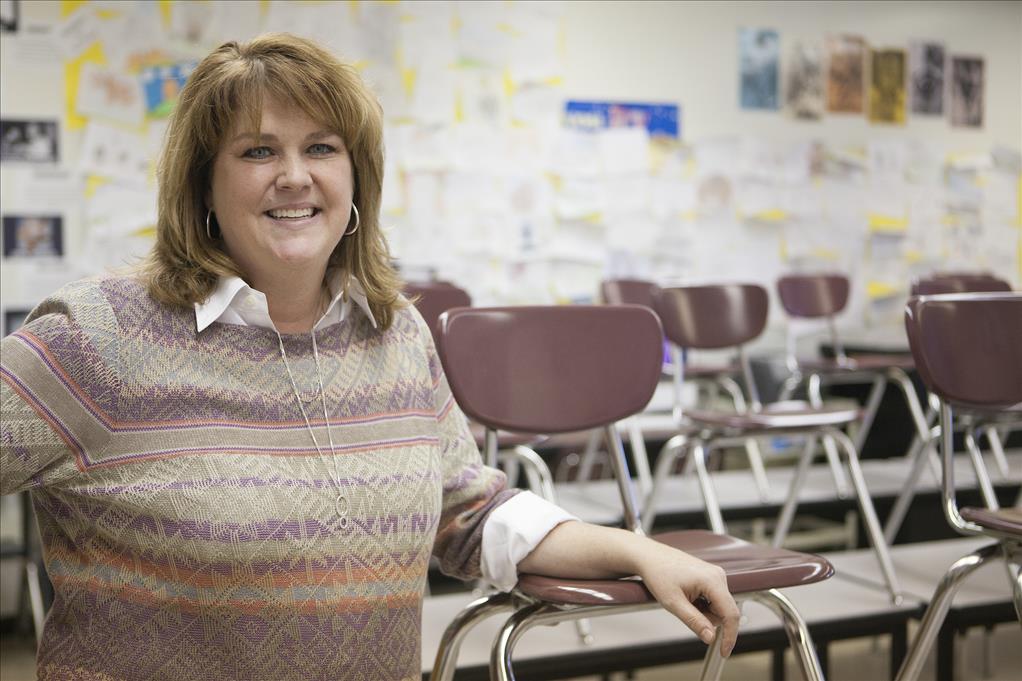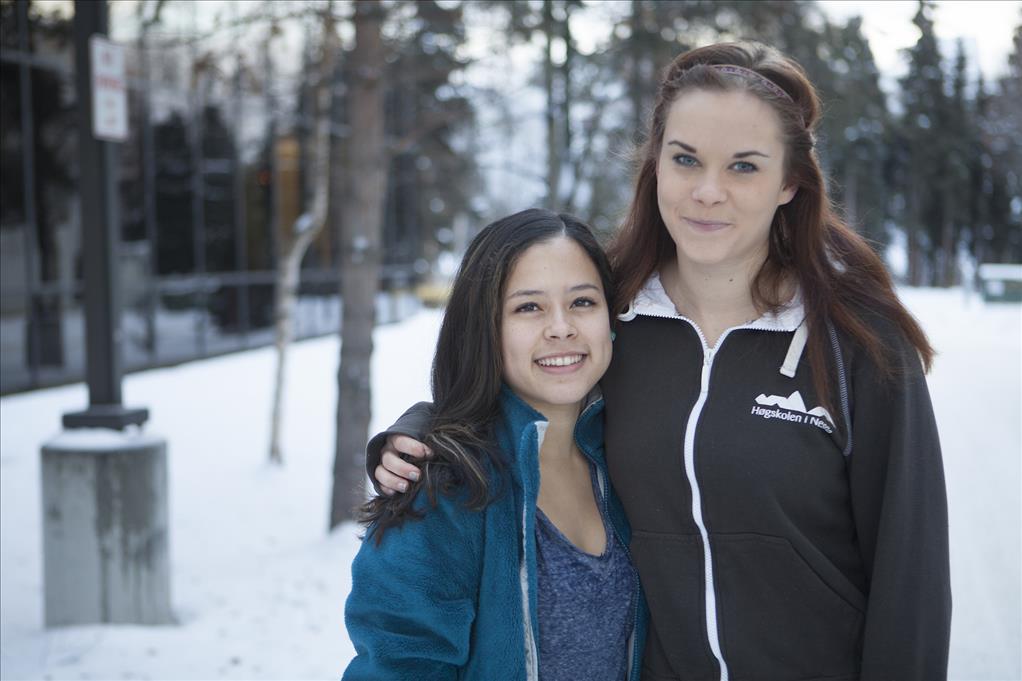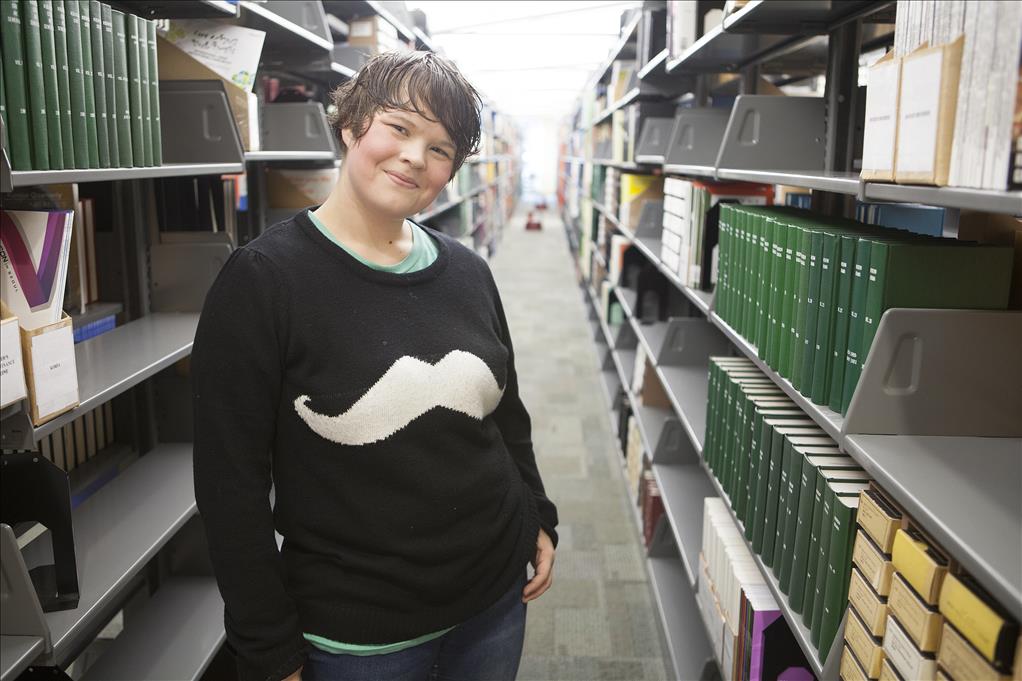Theresa Cho: Undergraduate advice from a senior
by Kathleen McCoy |
Theresa Cho has won just about every accolade you can chalk up at UAA.
She arrived as a UA Scholar, 15th out of a class of 500 from East High. She made the dean's and chancellor's lists. Addressed Freshman Convocation. Racked up honors for community involvement. Publicly thanked donors with a personal speech. Balanced her studies while working up to 30 hours a week. Conducted research with psychology professor Gwen Lupfer-Johnson and assisted comparative physiologist Jonathan Stecyk in his lab.
Academic conferences selected her work as excellent examples of undergraduate research. This spring, she won a grant to attend and present her work at the prestigious National Conferences on Undergraduate Research (NCUR) at the University of Kentucky. Even now, months later, she thanks donors for providing the travel money for her to attend. Without it, that experience wouldn't have been possible for her.
Her penchant for fine work has already earned her an "I AM UAA" feature story in Green and Gold News back in August of 2012.
So why are we coming back to her now?
Because with experience comes wisdom, and Theresa has some to share. With just a few remaining classes and medical school on the horizon, she's willing to acknowledge it: All those belt notches listed above-none of them came easy. She has worked hard for every inch of success she's earned.
She wants other students to know that despite lots of challenges, they can be just as successful.
As a first-generation immigrant, the only daughter of a couple that relocated to Alaska from the Philippines when they were young, Theresa had to learn from the ground up how to navigate UAA. Nobody in her family had had the experience of going to an American college. She helped pave the way for her younger brother, now pursuing computer science at UAA.
"Were you intimidated?" I asked. "Yes!" she responds emphatically. A hearty laugh follows quickly, but when she says, "I had to fake it till I made it!" her voice has conviction. How did she overcome her reticence and lack of confidence?
"I attribute a lot of my success to the Honors College. If not for them, I wouldn't be here talking to you now," she says. "The faculty and counselors push you to do things you don't necessarily want to do. They know you'll be better for it in the end."
Remember that fact up above, that organizers have selected her conference work as "best of?" She has professor Gwen Lupfer-Johnson to thank for that one. Together they were submitting her honors thesis for publication, which included a potential opportunity to present at a regional conference, Behavioral Sciences of the North. The professor dropped hints that this would be a great moment for the student, hints that Theresa was noticing but not seizing.
Finally, "Dr. Gwen's suggestions boiled down to, 'You are doing it!' And I could only reply with, 'OK, Dr. Gwen...'"
Best of all, at the conference, judges singled out her work for its excellence. "I felt really proud I made it through and won the thing; that was a significant moment for me."
So, Lesson 1: Allow yourself to be pushed. It's how you grow confidence.
Of course, sometimes we have to learn our lessons over. Just this last spring, Theresa worked in a challenging lab environment with Jonathan Stecyk, trying to understand what makes a turtle's heart beat under extreme conditions. The turtles arrived sick and nursing them back to health fell to her and another lab worker. "It involved giving them injections, cleaning their living spaces, feeding them. It was a lot of time and work."
Then, there was the science on top of it all. She can tick off what she learned in this lab: critical thinking, problem solving. "Even after you get all your data, you are thinking 'what does it mean?' How does the data fit in with the big picture? There's a reason it's called research: Go look again! This really cultivates independent learning," she says.
But the real true thing she got out of this job? Surviving her mistakes.
"You're working with molecular techniques, so things are not physically visible. You are imagining what is going on. All the liquids look the same, so you really have to keep track. Then you're working with such small amounts. If you have a tad bit more there and a tad less here, it throws everything off."
She found all that complexity tough to master. "I made a lot of mistakes," she puts it bluntly. "Whenever I learn something new, I am nervous, and naturally, I make these mistakes. This research for me was growing from that, having to jump over that fear and overcome it."
So here's another tip. When you are looking for a professor to work with, do a little research on her or him. 'Read ratemyprofessor.com," she says, "and talk to other students working in the lab you're interested in. Know who they are and how they work with students." As intense as those lab experiences were, Theresa says she's found that most professors are willing to teach you what you need to know for a job in their lab. All you really need to bring to the table is "your interest and a serious work ethic."
Lesson 2: Take care of yourself.
This was a big lesson for Theresa. Somewhere in the middle of her undergraduate years, all the academic and work stress got to her. She got rundown and eventually she got sick, including a short stint in the hospital. It was serious.
That experience taught her that work/life balance is real and you're never too young to practice it. "I learned how to manage it," she says. "Since that point, I've been more cognizant of not throwing myself into work as much as I used to, and really remembering to take some time for myself."
A key factor in doing this successfully is to communicate well with your professors and superiors, she says. During one of her jobs in a lab, when she got overwhelmed, she sought out her professor and discussed the situation. She was able to withdraw from the lab briefly, get the rest she needed, and return strong. You don't have to quit or drop out, she says. Take a step back, regroup, and move forward again.
Lesson 3: Seize opportunities.
When Theresa won the opportunity to present her work at NCUR, it was her first opportunity to attend a conference that represented humanities research right alongside hard science. This was a true gift, she says. "I was really really excited to see how arts does research," she says. "This was my third symposium, and the only one that included the humanities."
I wondered if that changed her perspective about pursuing medicine. Did she consider switching her emphasis? Not really, "but I think a lot of experiences build your knowledge set and make you into a more well-rounded person both academically and professionally. I was also able to be in an environment where seeing other students' work helped me gauge where my work and academic career stood. NCUR gave me all of this."
A question I often ask seniors who've successfully navigated UAA is this: What would improve this university for other students? Theresa's answer came quick. If she had a wish, she would universalize the approach she experienced in the Honors College, where faculty and counseling mentors push students beyond what they think they are capable of. It made the difference in her academic career and she wishes the same for every single student following in her footsteps.
Written by Kathleen McCoy, UAA Office of University Advancement
 "Theresa Cho: Undergraduate advice from a senior" is licensed under a Creative Commons Attribution-NonCommercial 4.0 International License.
"Theresa Cho: Undergraduate advice from a senior" is licensed under a Creative Commons Attribution-NonCommercial 4.0 International License.










